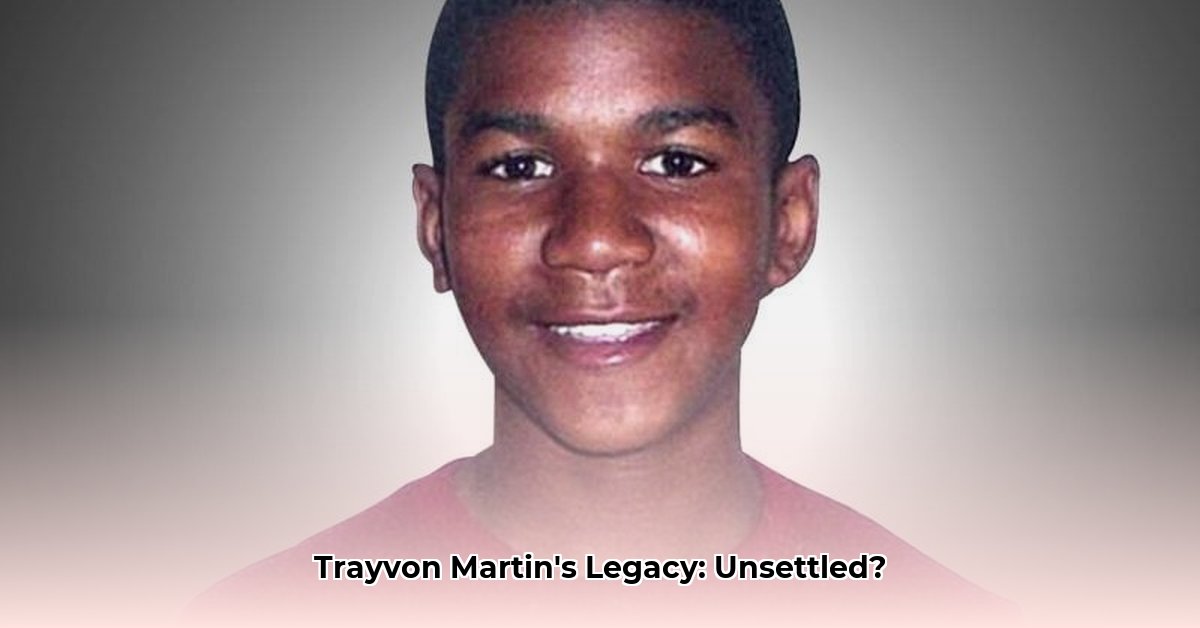
Trying to assign a monetary value to Trayvon Martin's life is not only impossible but also deeply inappropriate. His worth as a human being transcends any financial calculation. This article focuses on the settlement his family received following his death, the broader societal impact of the case, and his enduring legacy.
The Settlement: Compensation, Not Valuation
After Trayvon Martin's death, his family received a substantial settlement as a result of a wrongful death lawsuit. It is crucial to understand that this settlement is not, and cannot be, a measure of his "net worth." The settlement represents compensation for the immeasurable loss of their son and the injustice suffered. The specific amount remains private, reflecting the family's desire for privacy during an already incredibly difficult time. Any attempt to speculate on the figure is disrespectful and detracts from the tragic circumstances.
Beyond the Financials: A Catalyst for Change
The Trayvon Martin case ignited a national dialogue about race, justice, and self-defense laws. The subsequent protests and activism highlighted the systemic inequalities within the American justice system. While the settlement provided some financial relief to the Martin family, the case's true impact lies in its far-reaching social and political consequences.
The National Conversation
The case's reverberations resonated across the nation, leading to increased awareness of racial profiling and implicit bias in law enforcement. It sparked intense debates regarding "Stand Your Ground" laws, their ambiguous language, and their potential for misuse. Did these debates lead to significant legislative changes? While some states have adjusted their self-defense laws following the case, widespread national reform remains elusive. The case, however, undeniably served as a catalyst for ongoing conversations and activism aimed at fostering greater equity within the justice system.
Long-Term Effects: A Changing Landscape
The Trayvon Martin case continues to shape discussions about policing, racial justice, and legal reform. The case's impact is evident in the increased scrutiny of law enforcement practices and the ongoing efforts to address racial bias within the criminal justice system. Many civil rights organizations cite the case as a pivotal moment that intensified their advocacy efforts and spurred further action. The long-term effects are complex and multifaceted, but the case stands as a stark reminder of the need for continued vigilance and reform.
Stakeholders and their Experiences
The impact of the Trayvon Martin case extended beyond the Martin family. Civil rights organizations experienced a surge in support and funding, allowing them to amplify their messages and expand their reach. Law enforcement agencies faced increased pressure to review their training and protocols on use of force. The public, as a whole, engaged in widespread discussions about race, justice, and self-defense laws, leading to a greater awareness of systemic inequalities.
| Stakeholder | Immediate Effects | Long-Term Impacts |
|---|---|---|
| Martin Family | Financial compensation; Increased public profile | Continued advocacy for social justice; heightened awareness of racial injustice |
| Civil Rights Organizations | Increased membership and funding; Heightened public awareness | Intensified advocacy; influence on policy and legislation |
| Law Enforcement Agencies | Increased scrutiny; Internal reviews of protocols | Modified policies/training; improved community relationships (ongoing effort) |
| The Wider Public | Widespread discussions on race, justice, and self-defense | Increased awareness of systemic inequalities and social justice issues; calls for reform |
A Lasting Legacy
Trayvon Martin's legacy extends far beyond any financial calculation. His death became a symbol in the ongoing fight for racial justice and equality. While attempts to quantify his "net worth" are misguided and insensitive, the impact of his case continues to shape the national conversation and inspire action for meaningful change. His story serves as a powerful reminder that the pursuit of justice, and the achievement of true equality, is a continuous journey. How effective have these efforts been? Significant progress has been made but the struggle continues.